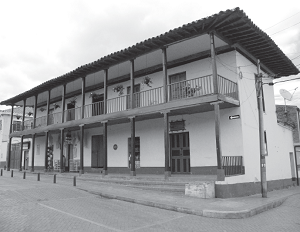Abstract
With the creation of the first American settlements, the institutions responsible for managing cities and ensuring the proper settlement of the legal, administrative and economic problems of its inhabitants are born. These institutions, which were created by the Spanish, were called councils. The place where they met regularly to session the council
was called the Town Hall, Municipal house, government house or guildhall. This article provides a brief overview of the town halls of the colonial era that are still standing in the department of Cundinamarca. Its typology is described in terms of architectural and structural terms, by studying the specific case of the town hall of Cogua. Likewise it is
studied the response of the building to service loads and potential seismic events and it is proposed a reinforcement to improve its structural performance.
Apuntes is registered under a Creative Commons Attribution 4.0 International Public License. Thus, this work may be reproduced, distributed, and publicly shared in digital format, as long as the names of the authors and Pontificia Universidad Javeriana are acknowledged. Others are allowed to quote, adapt, transform, auto-archive, republish, and create based on this material, for any purpose (even commercial ones), provided the authorship is duly acknowledged, a link to the original work is provided, and it is specified if changes have been made. Pontificia Universidad Javeriana does not hold the rights of published works and the authors are solely responsible for the contents of their works; they keep the moral, intellectual, privacy, and publicity rights.
Approving the intervention of the work (review, copy-editing, translation, layout) and the following outreach, are granted through an use license and not through an assignment of rights. This means the journal and Pontificia Universidad Javeriana cannot be held responsible for any ethical malpractice by the authors. As a consequence of the protection granted by the use license, the journal is not required to publish recantations or modify information already published, unless the errata stems from the editorial management process. Publishing contents in this journal does not generate royalties for contributors.


